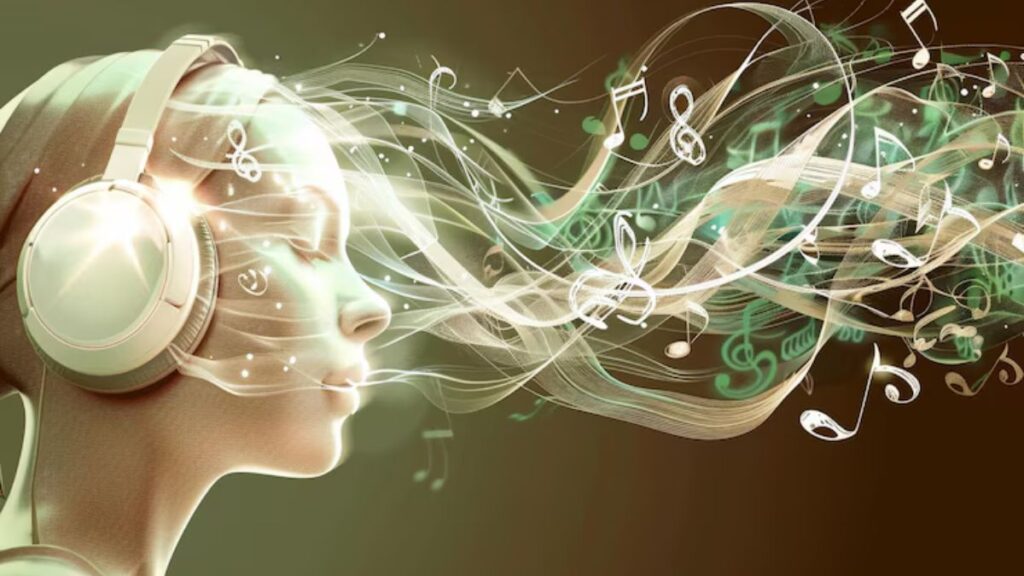Let’s face it—technology is changing everything around us, and music is no exception. Whether you’re a casual listener or someone who creates tunes in your bedroom studio, you’ve probably come across the term AI generated music. It sounds futuristic, maybe even a little unsettling. Machines making music? Isn’t that something only humans can do? That’s exactly why this topic is both fascinating and a bit controversial. In this post, we’ll break down what AI-generated music actually is, how it works, and most importantly, what it means for musicians, fans, and the future of creativity. Don’t worry—no technical jargon here, just an honest conversation about something that’s shaking up the music world in unexpected ways.
What Is AI Generated Music, Really?
Before we go on, let’s set out how we define AI-generated music. Simply put, it’s music that’s created with artificial intelligence. They are software programs that learn from gazillions of existing music—notes, lyrics, rhythm, tempo, and even emotional material—and produce new music out of those patterns. Think of it like giving a robot access to the world’s entire music library and asking it to make its own song. Tools like Amper Music, AIVA, and OpenAI’s Jukebox are already doing this, and some of the results are shockingly good.
But don’t imagine a robot gypsy playing the guitar. This is really more of an algorithm and calculation that creates original works which are surprisingly close to what the human composer might have created.
The Practical Side: How People Are Using AI Music
So why would anyone compose music with AI? Well, the answer is simple: efficiency, inspiration, and accessibility. Here are a couple of real-world examples:
Content Creators: YouTubers, podcasters, and marketers often need background music. Instead of commissioning a composer or buying expensive royalty-free music, they can generate custom music in minutes.
Musicians and Producers: AI is used by some musicians as a creative collaborator to stimulate ideas or experiment with new styles. It can suggest chord progressions, melodies, or even lyrics.
Hobbyists and Newbies: Non-musicians or those with little or no musical background can now play around with making music without needing to learn how to play an instrument or read sheet music.
One of my pals, who has a travel vlog, started employing AI programmes to write original background music for his videos. Not only did it save him money, but also gave his content a personal touch. He now mixes AI-bred tracks with live soundscapes for a hybrid of an aura that’s uniquely his own.
The Good: Why AI Music Isn’t All That Bad
Most individuals think that AI music is the end of human creativity, but it may not be. There are actually a number of benefits:
- Beating Creative Blocks: Have you ever looked at a blank page (or DAW) and had no clue where to start? AI can help you break past that first block by generating ideas to work on.
- Leveling the Playing Field: Not everyone can afford music school or instruments. AI makes it possible for more individuals to access their creative side.
- Accelerating the Process: Need to have a jingle tomorrow? AI technology can crank out sketches in minutes, with time to refine and add the magic.
And let’s not forget the learning experience. Would-be musicians can break down AI-produced tunes to understand structure, harmony, and genre fusion.
The Concerns: Is There a Dark Side?
Not all rainbows and sunshine, for sure. There are legitimate concerns over the growing influence of AI when it comes to music.
- Originality and Authenticity: Can a machine truly understand the human condition? Detractors argue that AI cannot capture the soul that gives music its emotional depth.
- Job Displacement: If businesses are able to create music on demand, what happens to composers, session musicians, and producers?
- Ethical and Legal Issues: Whom do you own an AI-composed song? The programmer? The user? What if it accidentally copies another song too closely?
They are nuanced questions with no easy answers. What we do know is that the industry will have to adapt and find new norms around copyright, credit, and attribution.
Advice for Musicians: Accept, Not Fear
If you’re a musician, take this suggestion graciously: don’t view AI as the adversary. Instead, treat it as a new instrument in your toolbox. Here are some ways to unlock its full potential:
Experiment Freely: Use AI to experiment with styles or genres you’re not used to playing.
- Collaborate Smartly: Leverage AI’s technical abilities while you infuse emotion and narrative into the work.
- Stay Ahead of the Game: Stay current with the latest tools and trends so you won’t be left behind.
The truth is, when photography was invented, humans were scared that it would kill painting. It didn’t—it just created new methods of creating and consuming art.
Conclusion: The Future Sounds Different, Not Worse
AI music is not about replacing people; it’s about altering the way we create things. Like any new tool, there are good and bad aspects. But with a thoughtful approach, we can use AI to improve our music, not harm it. If you’re an artist, content creator, or just a decent music fan, now’s the time to take a look at this shiny new frontier. Who knows? The next big song you love might be one that had a machine’s aid.






